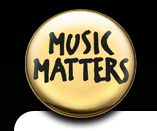I announced the return of MySpace just last week, and now I find that an even more emblematic service is trying to slip back into the public eye. I’m talking about Napster, one of the most widely-discussed P2P filesharing platforms ever.
“What do you mean ‘slip back into the public eye’? Wasn’t the service dead and gone for good?”, I hear you retort. To which I have to reply, “no, it wasn’t”.
You see, although Napster’s days as a filesharing service were over by July 2001 (when the service was forced to close down after a much-publicized legal dispute with the RIAA), the name “Napster” has changed owners a good couple of times. One of these was Roxio, which relaunched Napster as a 100% legal music service shortly after it was originally closed. It was all to no avail, and most people never noticed. To them, Napster sank from sight when it stopped being a place to get music for free. Period.
But Napster’s latest owners are intent on reclaiming some of the fire the service had on its P2P glory days.
Napster has just been acquired by Rhapsody for an undisclosed sum, and it is to be relaunched as an on-demand service letting users listen to all the music they want in exchange for a monthly subscription. Continue reading


